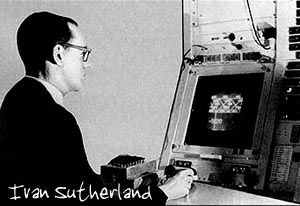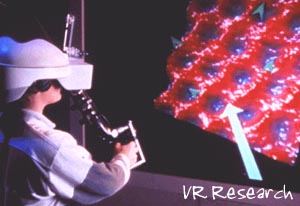









 |
Whether virtual reality will have positive or negative implications on the social structure is debatable, but one thing is certain – VR will play an increasingly important role in public and private life as we move towards the future. The idea of virtual reality faces humankind with a completely new phenomenon, what are the practical consequences of inhabiting a different reality? (Sherman and Judkins 1992) |
The chart below briefly outlines some of the major arguments for and against societies inevitable submission to a virtual reality culture.
| Pros |
Cons |
| • VR is imaginably more personal than electronic mail or instant messaging, or even a letter or a telephone call • VR is a great social leveler, it may find a common ground across differences in age, culture, and linguistic orientation (Biocca and Levy 1995) • people will be drawn together by similar interests instead of purely by geographic location (Biocca and Levy 1995) • communication will be both challenging and rewarding, more effective and productive, and thus more enjoyable (Biocca and Levy 1995) • a tremendous opportunity for every 'connected' person to find his or her field and/or discipline(Biocca and Levy 1995) • after using a medium that provides total freedom of expression face-to-face communication may be found to be too confining (Cartwright 1994) |
• an inescapable aspect of social life is the formation and maintenance of interpersonal relationships (Biocca and Levy 1995) • interaction ought not be substituted for community (Mayer 1999) • separates the 'haves' from the 'have-nots', a technology of Information Age Industrialized nations • VR will provide a communication environment in which the dangers of deception and the benefits of creativity are amplified beyond the levels that humans currently experience in their interpersonal interactions. (Biocca and Levy 1995) • could lead to low self-esteem, feelings of worthlessness and insignificance, even self-destructive acts (Cartwright 1994) |
Will
we be cut off from reality living in a computer-generated fantasy?
Or will we be more involved with others having adopted a new method of
social interaction?
Does
the future contain a VR world driven by commercialism and produces an
offspring of techno-addicts and sociopaths?
Or can
we imagine a future driven by researchers and educators, those who desire
the greatest common good over the almighty dollar?
Sherman and Judkins have written an incredible book in regards to the projected future ramifications of a VR society, and you can purchase it by following this link: Glimpses of Heaven, Visions of Hell: Virtual Reality and its Implications. As the debate over the effects on society of VR, perhaps it is important to look back to VR visionary Ivan Sutherland and his statement from 1965. “Why not create computers that were designed to accommodate themselves to the way humans worked?” |
 |
There seems to be little doubt among thinkers of the social impact of VR, as much as television has, and the Internet is, regarding playing its own part in the power games of our time. But like everything, humankind will adapt by necessity. From health to education, torture to war, and art to government; virtual reality will increasingly make its presence felt and change the way we perceive things. ‘As time goes on, so the technology will progress, and move further away from its original aims, rather like gunpowder. virtual reality started in the abstract, and then moved on to war; perhaps ultimately it will bring peace.’ (Sherman and Judkins 1992)
In the future we will only be limited by our imagination regarding the uses of virtual reality. Thus it is neither good not bad, but rather what we make of it. “It could be a lifesaving godsend, a groundbreaking educational tool, a means of becoming out best selves. Or, it could be a mindless, energy-sapping diversion, an off-ramp to electronic isolation, a playground for immortality. Chances are, it will be all of these things.” (Kershner 1995) |
 |
This site was published for Communication Studies 380 at the University of Calgary, March 26, 2004
